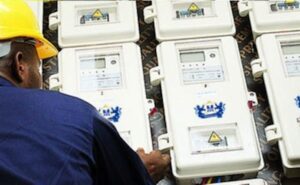
Energy needs: Govt should optimise mini-grids for electricity supply
Among other things, electricity is one thing Nigeria has kept struggling with over time. For a population of over 220million people, a generating capacity of less than 5,000 megawatts is a loud deformity, in all clear expression irreconcilable for a growth yearning economy.
The importance of upscaling the generating capacity of the Country cannot be overemphasised. This is, however, not to say that the profile of other layers of the power architecture chain, to mention, transmission and distribution, are in appreciable conditions. They are themselves in their own faultlines of deficiencies, culminating in an inefficient system of power architecture.
However, for power generation which has remained a major point of discussion, the subject revolving around its instability has become pertinent to fix in the discourse of proferring intervention to the nation’s power sector.
The new government of the President Tinubu led Administration has come at a time when the ebbing state of the economy has steeped so low into the mess of woes of negativities. Revamping the economy has become a song whose echoes cannot faint as many groan over the strains making conditions driving towards the junction of unbearable limit for many. The importance of the need to fix electricity challenges in the Country is a discourse of weighty emergency, particularly as the cost of petroleum products which has for years served as alternative for private generating set, has become largely more unbearable for businesses and household consumption following the discontinuation of subsidy payment.
It is no doubt that to recover the economy from the lowering slope headlong into the mire, the place of power stability and efficiency cannot be taken lightly. It is certainly one of the key subjects that must be given unreserved attention if the narratives of the country’s economic profile must be addressed.
Again the place of power projects remain of significant discourse. Recently, the World Bank disclosed, late June, that it was considering supporting the Nigeria Electrification Project, (NEP) with another $750 million grant. The initial $350 million NEP grant ends in August, 2023. The NEP seeks to bridge the energy access deficit by providing electricity to households, micro, small, and medium scale enterprises (MSMEs), educational and healthcare facilities in unserved and underserved rural communities through the deployment of mini-grids, solar home systems, captive power plants, and productive use appliances. The mini-grid component of the project has a $48 million allocation. The mini-grids which were built under the performance-based grant of NEP were founded by the World Bank.
World Bank Director of Strategy and Operations, Western/Central African Region, Ms Elizabeth Huybens when she inspected, in June, two 60 kilowatt solar-powered mini-grids in Kilankwa I and Kilankwa II communities in Kwali LGA, Federal Capital Territory, explained that access to electricity was a priority goal for the World Bank as it was one of the fastest routes to get people out of poverty.
“These mini-grids really will help Nigeria provide access to electricity to many more people faster than it could have done with just extending the national grid. I’m very impressed that the system of mini-grids in small communities works and that there is also the foresight how one can optimize the use of the electricity generated to expand productive activities in the community like this rice mill we have just seen.
“We believe that access to electricity for all is one of the most important goals to pursue for any country because without electricity, it’s very hard to think about how communities can really live, if you don’t have electricity, kids cannot study at night. Nobody can have a refrigerator.
“We cannot move towards electric vehicles if we don’t have electricity. In fact, you cannot even charge your cell phone without electricity, right. So it’s hard for me to think about modern life without electricity. It’s hard for me to think about reducing poverty without access to electricity. And since the World Bank’s overarching goal is to help countries eradicate poverty, we need to help countries provide access to electricity to their populations,” she said.
For project expansion, she said: “The first Nigeria electrification project that we see at work here, which I believe was $350 million, is coming to a close and so we are preparing a successor project that will be $750 million.
“So we are definitely expanding our support to something that we think is really critical and on which, by the way, Nigeria is leading the world with this sort of small grid development.”
She expressed the hope that the setting up of mini-grids across the Country through the NEP would reduce the reliance of petrol-powered generators used by households and businesses, especially in the face of the recent removal of subsidies on petrol.
On the technical detail of the project, Managing Director of the Rural Electrification Agency (REA), Engr. Ahmad Salihijo Ahmad had explained that about 300 homes and businesses are connected to the 60KW mini-grid.
“This is a performance grant-based project of the World Bank. The project is serving about 300 connections, it has been operational for some time now. So, we are privileged to have come here with the director from the World Bank to see how it is performing. We are working on productive use and ensuring that we have energy-efficient equipment connected to the minigrid,” he had stated.
Following the emergency need for reliable electricity supply, particularly as needs have become more pressing following over 300 per cent hike in fuel pump prices informed by the removal of petrol subsidy, the significance of the demands would require that the Government make concrete room for a decentralised system to optimise the avenue of mini-grids to meet critical energy demands.
It is important to explore mechanisms of funding to expand special provisions in this regard, as intervention to meet the rising needs. This is important for survival of small businesses and for eradication of poverty in line with the demands of revamping the wobbling economy.



